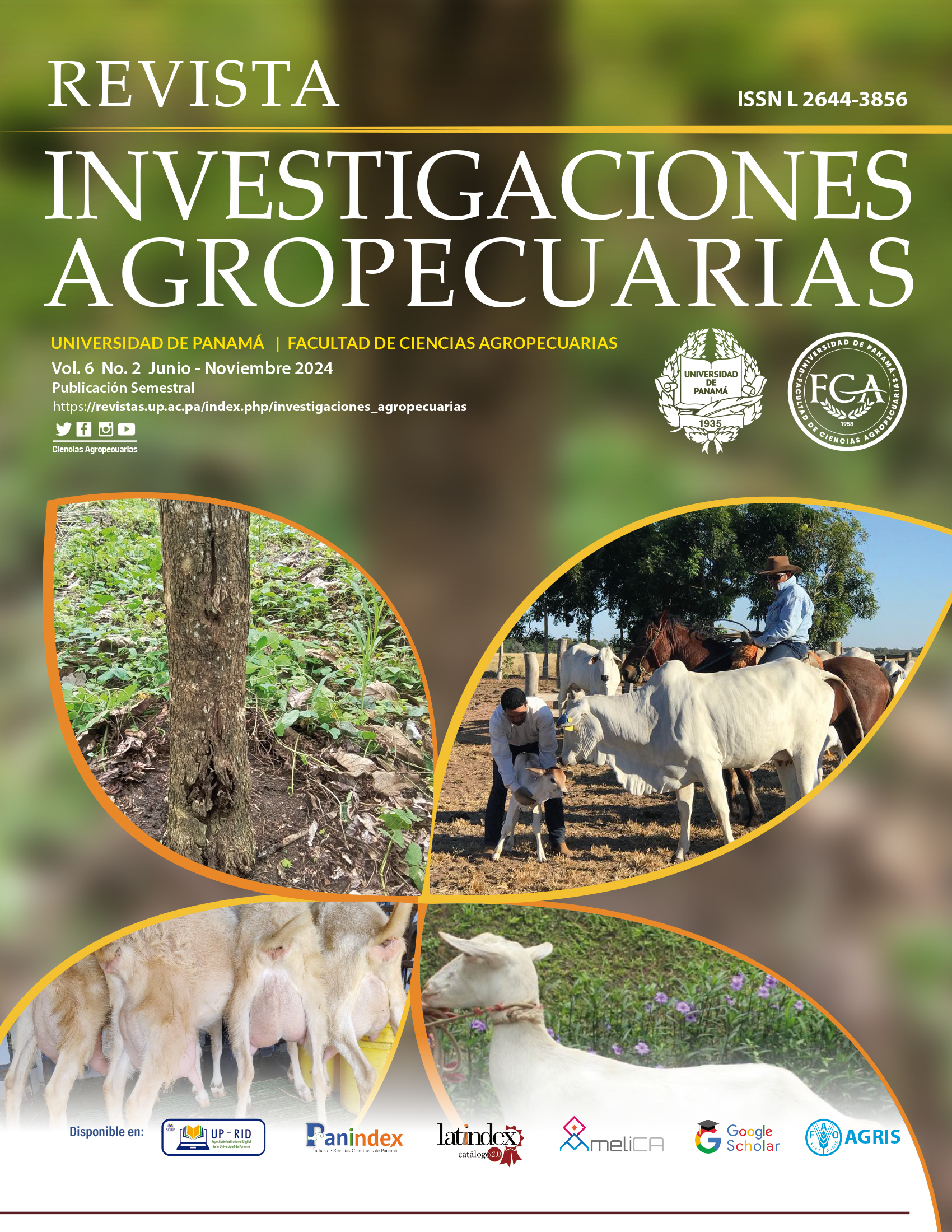

Copyright (c) 2024 Revista investigaciones agropecuarias

This work is licensed under a Creative Commons Attribution-NonCommercial-ShareAlike 4.0 International License.
This study evaluated the prevalence of gastrointestinal nematodes in farm horses of rural communities in some provinces of Panama. Fecal samples were collected and coproparasitological techniques were applied to determine the presence of the genera Trichostrongylus spp, Strongyloides sp, Strongylus spp and Parascaris spp. The results showed that the age of the horses was associated with high infection indices, with younger males being the most affected. The most prevalent nematodes were Trichostrongylus spp (x? = 720hpg) y Strongylus spp (x? = 655hpg). It is recommended to implement proper preventive measures to reduce infestation by these parasites and thus improve the welfare and health of horses, as well as to prevent diseases related to it.